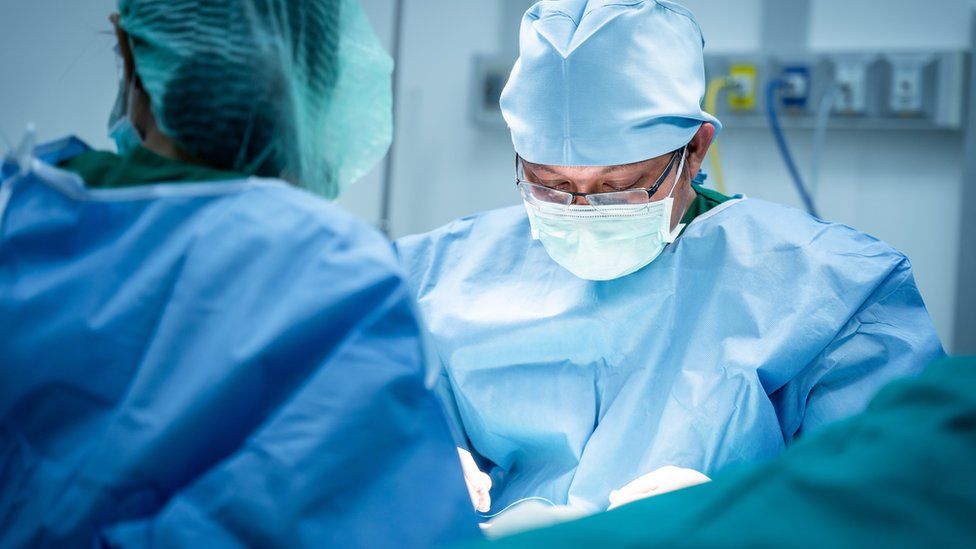ARTICLE AD BOX
By Christy Cooney
BBC News
 Image source, Getty Images
Image source, Getty Images
Researchers have successfully altered the blood type of donor kidneys in a discovery that could increase the supply of the organs for transplant.
The breakthrough has particular implications for minority groups, who often find it harder to find a match.
A kidney from someone with blood type A cannot be given to someone with type B, and vice versa.
But changing the blood type of a kidney to the universal type O will mean it can be transplanted into any patient.
People from black and other ethnic minority groups often have to wait a year longer for a transplant than white patients because they are more likely to have the rarer B-type blood group.
Rates of organ donation among those populations is also lower. In 2020/21, just over 9% of total organ donations came from black and other minority ethnic donors, while people from those communities make up 33% of the kidney transplant waiting list.
Scientists at the University of Cambridge were able to use a normothermic perfusion machine - a device used to pass oxygenated blood through a kidney to help preserve it - to flush blood infused with an enzyme through a donor kidney.
The enzyme removes the blood-type markers that line the blood vessels of the organ, effectively changing its blood type to type O. The process took a matter of hours when it was successfully performed on three donor kidneys.
Serena MacMillan, a PhD student who worked on the study, said it was "very exciting to think about how this could potentially impact so many lives".
The next step is to see how the kidneys react when given a normal supply of blood from their new blood group, something which can again be tested using a machine before the kidney is transplanted into a patient.
The research, which is funded by charity Kidney Research UK, is due to be published in the British Journal of Surgery in the coming months.
Dr Aisling McMahon, executive director of research at the charity, called the work "potentially game-changing".

 2 years ago
26
2 years ago
26








 English (US) ·
English (US) ·